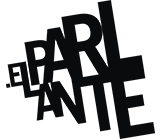Human beings have serious problems agreeing on most issues, but there is one that seems to have unanimity: one of the things that concerns us all is health. Not only do we want to enjoy good health, but we wish it to our families, friends and the community to which we belong. Most people prioritize health over money, leisure, love or power.
As health is important for everyone, health communication should be rigorous, close, versatile, creative, innovative and strategic. That said, it is important to understand that corporate or institutional communication – which we also do in elParlante – It is legitimate to disclose important information and actions, but may be insufficient to propose behavioral changes. In this sense, theEducommunication for Active Citizenship – which includes health issues – is a process that happens where people are, allowing these people to speak out and appropriate projects to strengthen their capacities.
In this way, Educommunication for Health – understood as a part of Active Citizenship – It will seek to influence, persuade, motivate, mobilize, recreate, empower, recognize, change, sensitize, train, etc. to citizens to have instruments that direct their lives towards a healthy environment. Health needs communication and education from the beginning of life to the last days, in addition to special attention during childhood and youth. To successfully achieve these objectives, it is necessary to involve the family, community and work environment.
Health is a social and community construct. It is not only about knowledge, but also about habits. It’s not just about knowing the food pyramid, how to put on a condom or that drugs are very harmful. Rather, it is about creating the conditions for people to talk about what affects them and looking for ways to transform false beliefs into concrete practices that have a positive impact on physical and mental health. Thus, theEducommunication for Health It requires understanding people, their beliefs and values, the social and cultural norms that condition their lives. In addition, a dialogue should be established with communities to see how they identify, propose solutions and act to solve them.
In this way, Educommunication for Health will be nothing more than the promotion of healthy lifestyles and self-care. From elParlante we have been working in this field for years. Some of the projects have been:
- Ravalead@s: Alcohol Guai, a series of audiovisual anti-spots built in a participatory way with a group of young people from the Raval neighborhood, to dismantle myths about supposed advantages of alcohol consumption.
2. City of Hope: A participatory video on unplanned pregnancy and another on peer violence at school. Each project has been socialized by the young participants in schools in Ciutat Meridiana, accompanied by a pedagogical guide designed with the Public Health Agency of Barcelona. We leave you the first video of the project, winner of a jury prize of the BcnZoom festival.
3. Ñañ@s: A series of three participatory videos made with the communities of Bella Maria, Chaquizcha and Guara (South of Ecuador) to foster dialogue on the sustainable development of their communities within the framework of a project to combat Chagas disease; an initiative carried out with theInstitute of Tropical Diseases of Ohio University.
